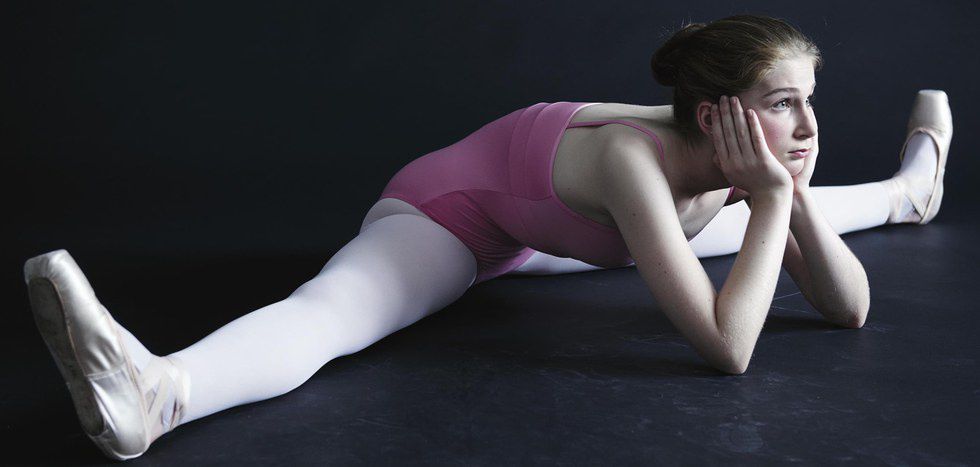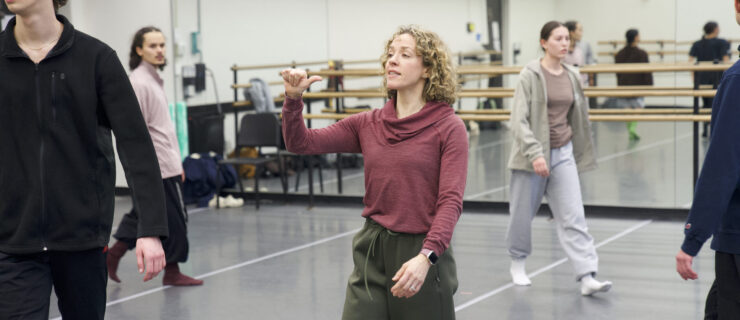Is Your Stage Parent Hurting Your Training?
Casting is being done for an upcoming show, and your mom just won’t let up. She’s in the waiting room every second you’re in the studio, and you’ve seen her pull the director aside at least twice. She has an opinion on every dancer in your class, including you. And the weight of it all is just too much.
As a dancer with an overbearing parent, it can often feel like you are competing with their expectations in addition to every other talented student in your school. Parents should support you, but there is a line where their involvement can hurt your development and potential future in dance. Understanding their perspective will help you address the situation, and ultimately take your training into your own hands.
Your Parents’ Point of View
Ever since you decided to be a dancer, your parents have probably done everything they can to make your dream come true. Out of love for you, they have paid for your classes, sat through performances and provided support when things got hard.
“Parents have made a huge investment,” says Dr. Brian Goonan, a psychologist who works with dancers at Houston Ballet Academy. “The loss of personal time spent driving back and forth to the studio every day, the cost of a costume that has no resale value. It is hard for parents to hold back from being direct support instead of just emotional support.”

Joanne Chapman, director of Joanne Chapman School of Dance in Ontario, Canada, remembers a recent competition where one of her most talented dancers came offstage and asked her mother how she had done. The mother responded, “I think you could have done better.“ “There was a complete meltdown in the change room,” Chapman recalls. “This mom is a great person. She is a single mother working extra hours so her daughter can dance. Parents want what is best for their kids, but sometimes they feel like they have the right to critique. ‘I work so hard to pay for you to dance and you don’t think that I should have a say?’ That is hard.”
Has Your Parent Gone Too Far?
It isn’t just embarrassing to have your parent meddling at the studio. It can also hold you back. In an effort to make their child seem perfect, Chapman says that stage parents often make excuses for their kids. Instead of making you explain to your director why you haven’t learned the choreography for the piece you are working on, they try to step in and will say something like “It’s my fault, I asked her to go to her sister’s graduation this weekend.” “They don’t allow their kids to take ownership of anything,” Chapman says.

PC Nathan Sayers
That habit can leave dancers less capable of navigating the demands of their career. Goonan advises that parents need to give children direction, but also the opportunity to fail in order to become self-sufficient. “As parents we may be disappointed in our child’s choice and find out they are not ready,” he says. But becoming independent is necessary because parents won’t be there to help forever.
Chapman says that a parent who is supportive in the right ways is doing things like paying your tuition, making sure you get enough sleep and helping you get to the studio every day with the tools you need. They should also be a shoulder to cry on when you need them. “But leave the dance training to the teachers,” she says. “That is a very definite line.” She says that criticism of your performance from a parent is never appropriate. “The only thing they ever need to say is ‘I loved watching you, you are my favorite dancer onstage.’ ”
Address the Issue
Goonan advises that you need to sit down with your parents and express clearly and calmly that you want to be more independent. Explain that you understand the potential consequences of this extra freedom. Start small by asking that they allow you to earn their trust by taking on specific responsibilities. For example, if mom insists on sewing your pointe shoes because you procrastinate, show her that you can for a month. If you are disappointed in casting, tell your parents you would like to talk to the teacher on your own to find out how you can improve. Make sure to tell them how thankful you are for how much they do for you so that they know the request isn’t due to a lack of gratitude.

Understand that this will be a difficult conversation for your parents, and, if they continue to balk at your request for independence, get a third party involved. Chapman is not afraid to have a conversation with an overbearing parent, and she advises that it is completely appropriate for a student to ask their teacher to help with the discussion if needed. “Sometimes parents think the more they squeak the more likely their child is to get an opportunity,” she says. “But it is so not true.”




